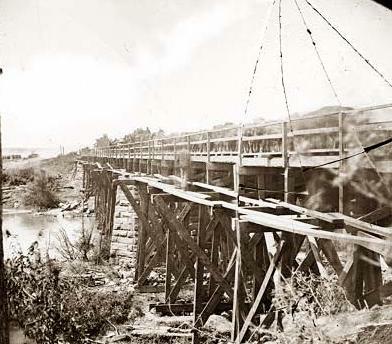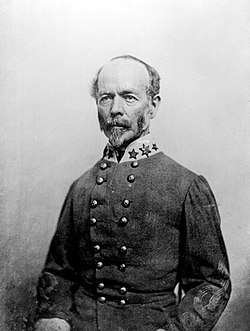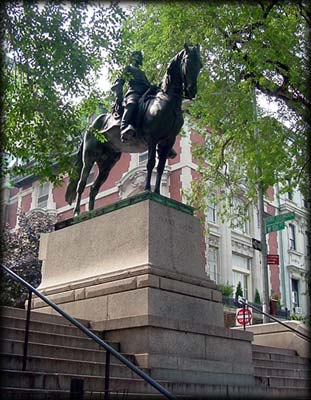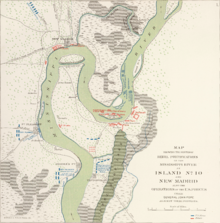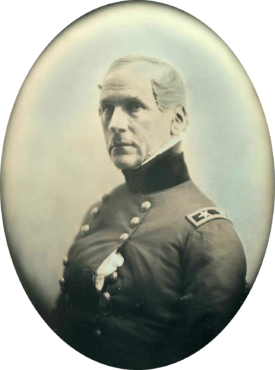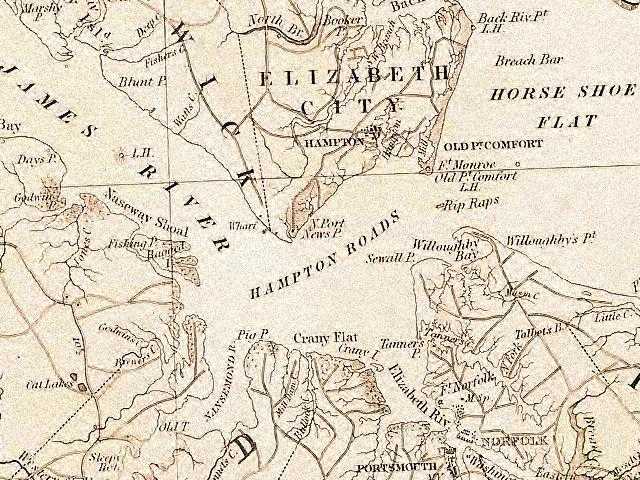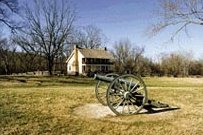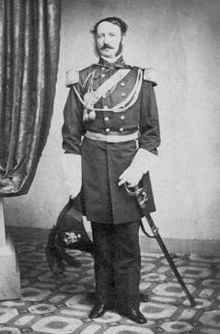 |
| General John Bankhead Magruder |
HEADQUARTERS NEAR BETHEL, March 20 1862.
GENERAL LEE, C. S. A.
Commanding Army, &C.
GENERAL: I am low down on the Warwick Road (Langhorne’s Mill), and at Bethel, with the greater portion of my command. The weather, which was fine when the troops marched, is now bad, and the roads which were almost impractical in my rear and were getting good, are now becoming again very bad since the rain of last night. I came down in the conviction that the right flank of my operating force on the James River was secured by the success of the Virginia and would not care for the roads so much, but from all I learn and see here I am the more convinced than ever that the enemy will persevere in his designs up the James River, and for the following reasons:
It will be greatly in their interest to keep such a ship as the Virginia confined to the Hampton Roads. This can be done if the Monitor, which as I have learned since moving the troops draws but 5 feet water, can be sent up the James River, supported by an irresistible column, say 20,000 men, whilst 20,000 would remain to occupy the vicinity of Fort Monroe and Newport News.
Should the Virginia go outside of Fort Monroe and Newport News, the enemy would steam across the lower James River with his 20,000 and cut off Norfolk, whilst the other 20,000, supported by the Monitor, would eventually succeed in pushing their way up to Jamestown.
Should the Virginia remain in the Roads, no troops could be thrown across as far up as she could go, which is but a few miles, but the column below would support the land operations of the column above, and the whole would cross above, say at Jamestown Island or Mulberry Point. The enemy is re-enforcing by every means in his power therefore at Newport News and Fort Monroe. Two regiments are reported to have arrived yesterday, and the vedettes on the advanced waterpoints report that some thirteen sailing transports were towed up the bay by steamer (tugs probably) yesterday, whilst I saw myself several sailing vessels in tow of steamers going up the day before. I think, therefore, that he is straining every nerve top put a large force on the Peninsula before the Virginia comes out, either to operate on the James River, York River, or both, whilst his troops march up.
It seems to me therefore that the Virginia, if she cannot get at the Monitor-a conflict it will be in the interest of the country to prevent-ought so to station herself outside of Fort Monroe so as to intercept all re-enforcements of troops and cut off further supplies. This course, if it can be pursued at once, might prevent the advance up by land, and would also prevent the course of troops in large numbers on the lower James River, at least as far up as the Virginia could go, since, if she could pass Fort Monroe once, she could return again to the Roads, if an attempt were made to pass troops in large numbers. By taking such a position the Virginia would also prevent an expedition of magnitude either up York or Rappahanock Rivers.
In think no time should be lost in sinking insurmountable obstacles in James River to prevent the Monitor from ascending. Nothing but positive physical obstruction will do against such ships. But the river would be less than useless to this army if the obstructions were made high up, since there could be no means of transportation below such obstructions, the Monitor destroying such means. It is necessary, therefore, to block up the river at some strategic point, affording to this army the means of safely ascending up the James River from that point. Jamestown Island alone fulfills these conditions, as far as I know.
Would it not be well, therefore, to sink vessels of all kinds, loaded with stone, at once, for this purpose, across the channel there, and fortify the island and the commanding main-land strongly without delay? The last I am doing with all the means in my power, but for the former the means must come from Richmond. I presume that all the sail vessels, some of the older steamers, and all the canal-boats above Richmond would do it effectually. If done at all it should be done without the least delay, and by an engineer, civil or military, of great energy and understanding. I could hold Williamsburg then and Jamestown Island at least as long as Yorktown could hold out, which I hope would be a long time.
I think McClellan has shown his plan is to turn flanks by great detours of land and water. The falling back of our army from the Potomac gives him the power to detach largely, and I think he will never risk a defeat himself when he can devolve the risk of it upon some one of his subordinates.
I am, general, very respectfully, your obedient servant,
J. BANKHEAD MAGRUDER,
Major-General, Commanding.
P. S.-Since writing the above I have received the following report from Colonel Crump, the correctness of which I have no reason to doubt.
Official Records, Series I., Vol. 11, Part 3, Page 338.
Magruder was eccentric, but he understood early McClellan’s intentions and strategic advantages. He was also correct in fearing the shallow draft Monitor (which actually drew 10 feet six inches) would be suitable for sailing up the James. But he was not aware President Lincoln had ordered the Monitor not to engage the Virginia, and he does not appear to realize the extent of the Virginia’s damage, which would keep it in dry dock until April 6. Magruder’s last paragraph is a striking indictment of McClellan’s character coming, ironically, before his famed “change of base.” If nothing else, this memo at least placed Lee and the War Department on notice that McClellan appeared to be moving to the Confederate flank by way of Fort Monroe.
